Sample Pages from [em]Science 4 for Young Catholics[/em] by Gregory Townsend, Ph.D.
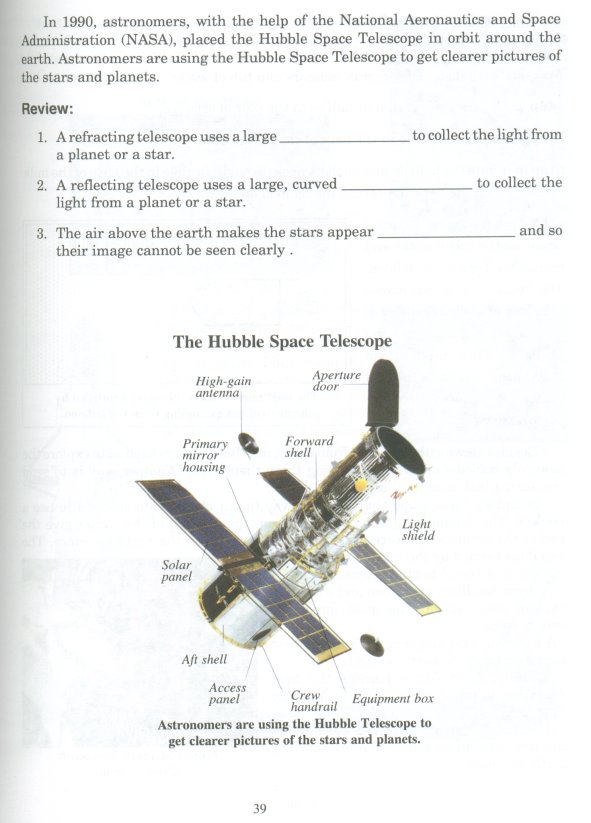
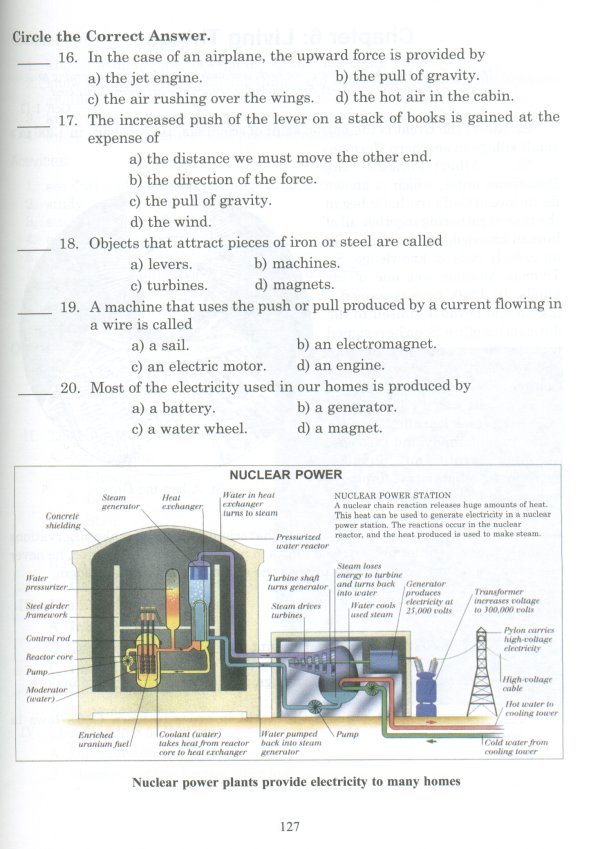
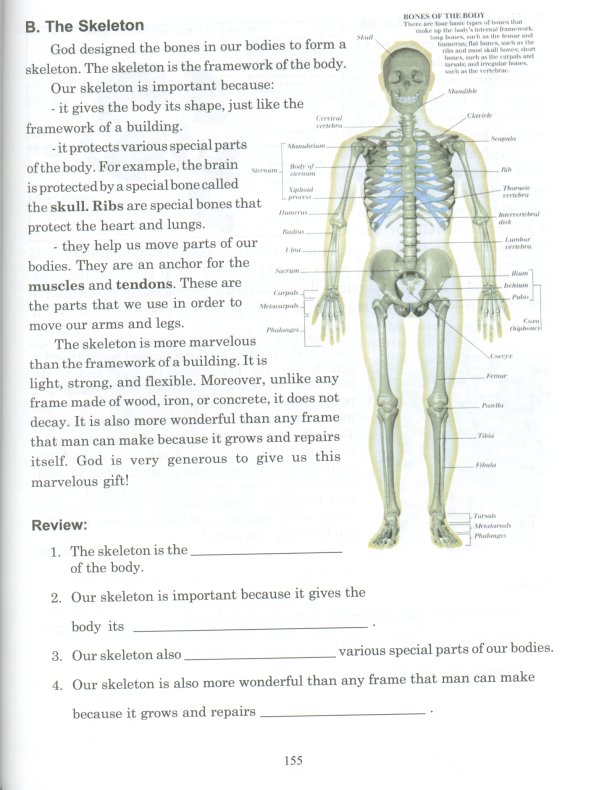




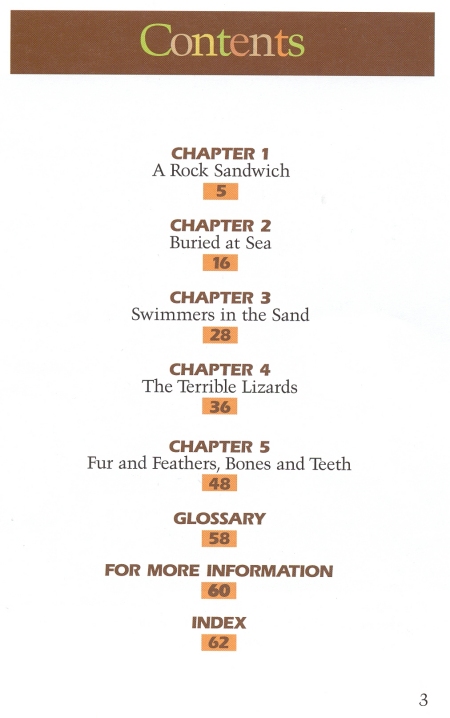
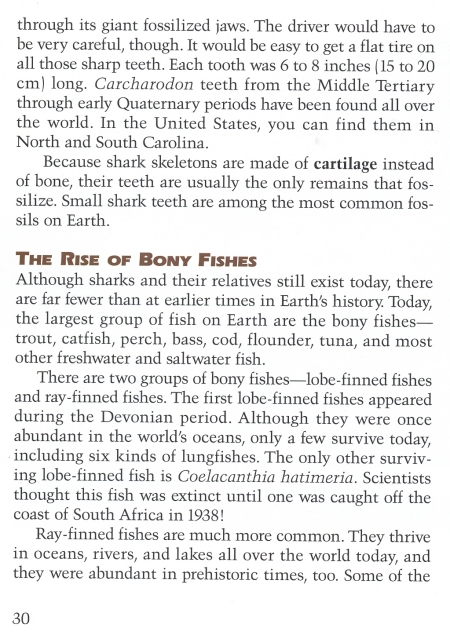
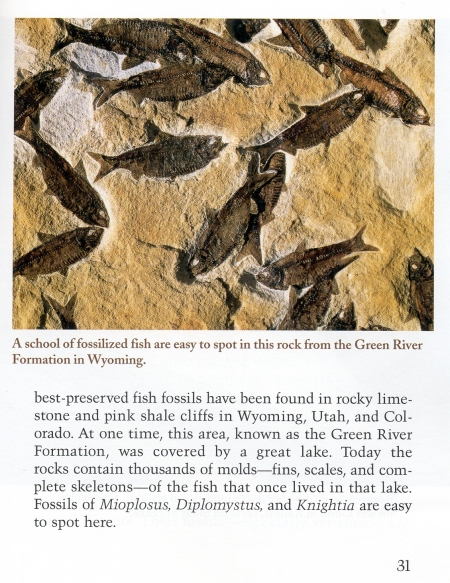
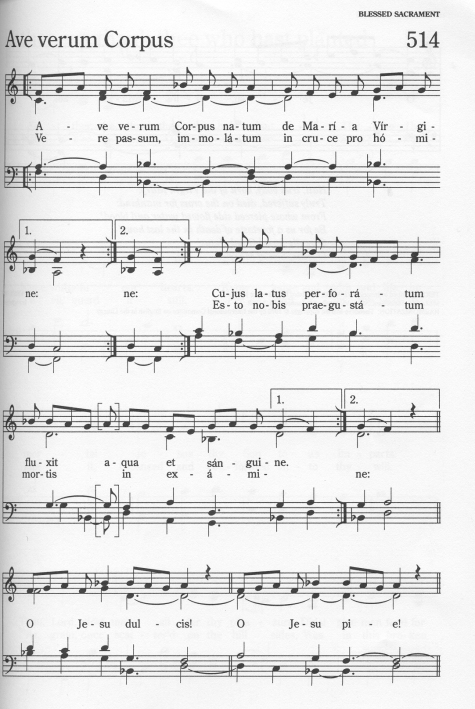
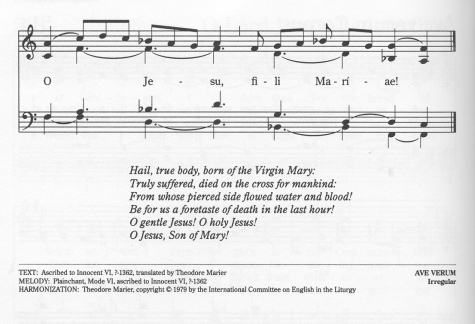
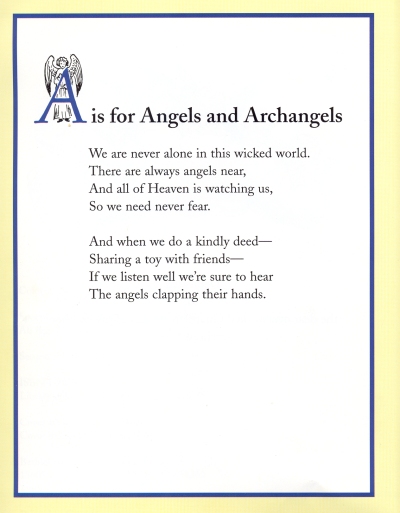
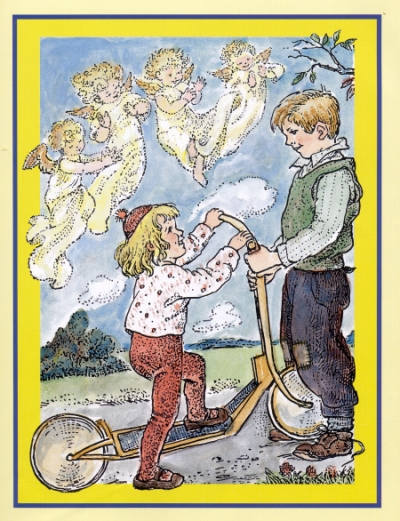
The Ring of Power
THE BARN SMELLED of stale hay, chicken droppings, and cabbage. Lorelei, the white hen, cackled. With a swift glance over her shoulder, Janna took the broom and chased the bird off her nest. Sure enough, there was an egg. Janna slid it into her apron pocket. The barn door creaked as Frau Kopp came in, towering over Janna, a mountain of authority.
"Kill me a couple of chickens, Janna, quick," she said. "I’ve unexpected company." Janna looked around in dismay. What she saw were not chickens but Lorelei and Ilsebill, the leghorns; Wilhelm, the rooster; Fritz and Franz, the cockerels; Lieschen, Gretchen, and all the other cackling, scratching friends she knew by name. How could you kill something that had a name? But what could you do against a grownup? Janna began to sweep vigorously.
"Johanna," repeated Frau Kopp, "did you hear me?"
Janna looked up, shaking the hair out of her eyes. "I can’t," she said, trembling at her own audacity.
"You can," Frau Kopp insisted. "I showed you. You wring their necks, like that . . . it’s easy. What a fool they have sent me—and the other one so good, so willing! Why did she have to leave?"
"I’m on duty," said Janna desperately. "We have a Youth meeting."
"But it isn’t Wednesday," protested Frau Kopp. "I know
"I know, I know," Frau Kopp interrupted, "you’ve told me before. Isn’t it early for you to go? Your meetings are always later."
"Not this one," said Janna.
Frau Kopp looked at her suspiciously, opened her mouth to say something, and then closed it again. It was not wise to tangle with the Youth groups; she’d heard stories. . . . on Wednesdays you have your Heim Abend and have to leave early. But today is Tuesday and you can help in the kitchen, can’t you?"
"It’s a special meeting," said Janna, noticing the frustrated expression on Frau Kopp’s face. No one was allowed to interfere with the Hitler Youth meetings: not the church, or the school, parents or employers.
"A special meeting, a special meeting," grumbled Frau Kopp. "You are always having these special meetings and I think it’s just to escape work. What’s this meeting for, then?"
Janna’s face lit up. "It’s a rehearsal," she said. "We’re going to do a play our group leader has written. And imagine . . . they’ve chosen me to be Brunhilde!"
"And who is Brunhilde?" asked Frau Kopp sourly.
"Don’t you know? She is Siegfried’s bride. He gives her the magic ring, which was stolen from the Rhine maidens. But there is a curse on it. Siegfried drinks an evil potion, forgets Brunhilde, and marries someone else. Brunhilde is furious and causes him to die, but she is sorry afterward, and when she lights his funeral pyre she jumps on it herself, and as they burn all the gods burn with them."
Frau Kopp had listened open-mouthed. "Where do you get all that heathenish nonsense?"
"Oh, it isn’t nonsense," said Janna. "It’s all in Wagner’s operas."
"It’s heathenish anyway," sputtered Frau Kopp. "And for that they keep you from honest work!"
"Learning a part is work too. My parents have to do it all the time. They’re famous actors, their pictures are often in the papers, and Hitler has praised them. It’s in an article . . . I’ll show it to you. . . . He says they are an outstanding example of true Aryan culture."
Adjusting her black shawl, she shrugged her shoulders. "All right, go if you must and leave me with all the work." She bent and made a grab at the unsuspecting Lieschen. Janna lifted her coat from a nail and fled.
It was the last half of February. The thick blanket of snow was raveled and torn, showing patches of earth and yellow vegetation. Streams rushed singing down the hills, sweeping mud and pebbles along. The mountains, wrapped in fog, loomed like ghosts. Janna’s boots picked up the sticky snow as she clumped along. A stiff wind tore at her hair and slapped her cheeks. She passed Frau Kopp’s farmhouse with its steep, overhanging roof, half himself on his chain trying to get to her. She patted his straw, half shingle. Bruno, the mongrel dog, almost choked shaggy head, climbed a fence, and stood on the road, where puddles gleamed between ridges of mud. In the distance the church steeple lifted a warning finger at a flock of crows that seemed to be weaving swastikas against the sky.
Janna took a deep breath. She had managed to evade the cruel task Frau Kopp had laid on her because she was a Hitler Youth. Frau Kopp was afraid of Hitler. All grownups were.
"Oh, it isn’t nonsense," said Janna. "It’s all in Wagner’s operas."
"It’s heathenish anyway," sputtered Frau Kopp. "And for that they keep you from honest work!"
"Learning a part is work too. My parents have to do it all the time. They’re famous actors, their pictures are often in the papers, and Hitler has praised them. It’s in an article . . . I’ll show it to you. . . . He says they are an outstanding example of true Aryan culture."
Adjusting her black shawl, she shrugged her shoulders. "All right, go if you must and leave me with all the work." She bent and made a grab at the unsuspecting Lieschen. Janna lifted her coat from a nail and fled.
It was the last half of February. The thick blanket of snow was raveled and torn, showing patches of earth and yellow vegetation. Streams rushed singing down the hills, sweeping mud and pebbles along. The mountains, wrapped in fog, loomed like ghosts. Janna’s boots picked up the sticky snow as she clumped along. A stiff wind tore at her hair and slapped her cheeks. She passed Frau Kopp’s farmhouse with its steep, overhanging roof, half himself on his chain trying to get to her. She patted his straw, half shingle. Bruno, the mongrel dog, almost choked shaggy head, climbed a fence, and stood on the road, where puddles gleamed between ridges of mud. In the distance the church steeple lifted a warning finger at a flock of crows that seemed to be weaving swastikas against the sky.
Janna took a deep breath. She had managed to evade the cruel task Frau Kopp had laid on her because she was a Hitler Youth. Frau Kopp was afraid of Hitler. All grownups were. hero who had fearlessly slain a dragon yet trembled at the sight of Brunhilde’s beauty. And that was another problem: Janna knew she was no beauty. Well, maybe they could do things with stage lights.
What would it be like to have a magic ring that gave you power over everybody? thought Janna. And why hadn’t Brunhilde used it to save Siegfried and conquer her enemies? Why had she given it back to the Rhine maidens? They had hidden the ring and now no one could get it, though some people said it had been given to Hitler and that that was why he had conquered all those countries.
A girl hailed Janna from a neighboring farm. She came running across the fields, darting around rocks and shrubs, her long braids dancing on her back. It was Greta, a classmate.
"Wait for me, Janna!"
"You got away early too," said Janna.
"I said we had a Youth meeting."
"So did I!" The girls burst into laughter.
"They’ll think it’s funny when we have our rehearsal on Friday. They’ll say we have too many special meetings!"
"They can’t do anything," said Greta. "We’re allowed as many meetings as we like."
"As long as our group leader doesn’t tell on us."
"She won’t. Hildegarde is nice. The other group leader we had, Hannelore, was awful, really strict. She used to make us march with heavy packs and take cold baths in freezing weather because she said we should be as tough as the boys. We were going to be the mothers of future German soldiers and she wasn’t having any weaklings."
"Did you bag anything today?" asked Janna.
"Not much. I think Frau Hahn is noticing. But if she says anything, I’ll tell on her. I’ll tell she slaughtered a pig illegally."
"Did she?" asked Janna.
"Of course. They’re always doing it, those farmers. They don’t care if our soldiers starve. I got some onions anyway. They’re good in soup."
"I got an egg," said Janna.
"An egg? But they count those!" exclaimed Greta.
"I got it before it was counted." They walked for a moment in silence, listening to a robin chirping on a bare branch.
The old mailman, his brown leather bag over his shoulder, was bicycling past. He was bent over the handlebars against the wind, treading down the pedals heavily with his big boots. Slush sprayed up and the girls jumped back.
"Gr�ss Gott!" said the mailman, nodding at them.
"Heil Hitler!" answered the girls, arms outstretched. Janna thoughtfully picked her way among the puddles.
"Did you ever see Hitler?" she asked.
"Yes, once," said Greta, "at that Youth rally we went to."
"There were too many people, I couldn’t see a thing."
"I climbed a tree," said Greta, enjoying Janna’s look of admiration. "But I didn’t see much," she confessed. "Only the back of his head and his raised arm. And do you know, he didn’t raise it high enough, not even as high as his shoulder!" Hildegarde made the girls raise their arms well above their heads, and no matter how long the occasion lasted, you were never allowed to rest your arm on the girl in front.
But of course Hitler didn’t have to raise his arm at all; the greeting was to him. Besides, laws were for other people, not for Hitler.
"Why did you want to go home early today?" Janna asked.
"Because of the test tomorrow," said Greta, looking worried. "They keep us working so late, I’m too tired to do my homework. I did badly all this term. Race science is our most important subject and I want to do as well as I can, but I can’t memorize all that stuff. Those terribly long words!"
"I know, like ‘brachycephalic,’ " said Janna. "That’s a kind of skull. There are round, square, and long ones, and it’s very important which kind you have. The Aryan ones are the best."
"Why?"
"It has something to do with room for your brains. Monkeys don’t have much. Aryans have the most. We’re Aryans, the only true race. We’re supposed to become supermen."
"What other races are there?"
"Oh, Slavs and Mongolians and Semites . . . that’s the Jews. When you don’t know the answer to a question, just say something bad about the Jews and they’ll give you a good mark. They’ll forget what they asked."
"Really?"
"Sure, I tried it. It sometimes works with Slavs too, they’re almost as bad as the Jews . . . that’s the Russians, you know. But the Jews are the worst. They made us lose the First World War. We were winning the war, the soldiers were winning it—and Hitler was a soldier then so he knows—but the Jews in Berlin made us sign the Treaty of Versailles and that made us lose the war. We lost a lot of territory so we hadn’t enough Lebensraum and we had to pay so much money to our enemies that we became poor. We even used our paper money in the toilets!"
"Why?" asked Greta.
"Because it was worth less than toilet paper. No one had work and people fell dead in the streets with hunger, but the democratic government did nothing. When Hitler came, he got back our lost territories and everyone had work. We had an army again and enough food. That’s why we have to thank Hitler before and after meals."
"But what has that got to do with race?"
"Don’t you see, Greta? It’s race that makes the Jews so bad. They’ve got the wrong blood. We were pure Aryans before the Jews came and we must become pure Aryans again. That’s why our boys have written on their daggers: ‘Blood and honor.’ It’s shameful to let your race deteriorate by mixing it with inferior races. In the ancient days of Atlantis the Aryans had magic powers. The swastika is a magic Aryan sign, you know. But the Jews have weakened us and we’ve lost those powers. Hitler wants to give them back to us, but he can do it only if we stamp out the evil influence of the Jews."
"Did you ever see a Jew?" asked Greta.
"No, only in pictures."
"A Jew used to visit our village before you came," said Greta. "Every Friday he stood in the marketplace, selling a pig. He had a big yellow star on his coat. But there was always something wrong with the pig. We were glad when he didn’t come any more."
"I think they’re like the Nibelungen dwarfs in our play . . . sly and dangerous," said Janna. "It’s the Jews in England and America that are Wghting us. All the Aryan people would like to belong to us. And the Jews gave us Christianity, which is making us weak. Christians have to love their enemies, do good to those who hate them, and give more to those who steal from them. If you believe that, how can you be a strong nation and conquer the world? Hitler says it’s impossible to be a good German and a Christian at the same time."
"Do you believe that?" asked Greta.
"Hitler says so," said Janna.
"And why are the Slavs bad?"
"They’re Communists; the Jews gave them Communism. They say that everyone is equal, and that’s a lie. There’s a master race, that’s us, and inferior races. The inferior races must serve the master race."
"You make it sound so simple, Janna. I wonder how you do it . . . all those long chapters in Mein Kampf . . ."
"I suppose it’s because of my parents," said Janna. "They’re famous, you know. Hitler said . . ."
"Yes, you told me," Greta broke in. The only thing she disliked about Janna was the way she boasted about her parents. "Here’s my road. See you tomorrow."
Greta lived in a hut in the mountains, while Janna’s home was in the village with her nurse Erna and Erna’s mother. The celebrated Mechtild and Otto Oster, Janna’s parents, had been traveling about for over two years, entertaining troops in foreign countries. They kept writing Janna that they would get a house soon and send for her, but so far it hadn’t happened. Janna consoled herself by writing them long letters and talking about them to anyone who would listen. They were always present to her, an admiring audience for all she did.
Erna took great interest in Janna’s Youth meetings, but the old mother, who mumbled away her last days in a rocking chair beside the huge blue porcelain stove, a rosary in perpetual motion between her fingers, disapproved of the Youth movement. She said it was wicked to hold meetings on Sunday mornings so that Janna could not go to church. She warned Janna not to listen to the pagan things she was being taught. She would go on to mutter threats against a mysterious being called Antichrist and predict all manner of evil for Germany, till Erna made her be quiet.
"Don’t mind her," Erna would say contemptuously. "The old one is crazy."
Janna loved her Youth group. It was the only pleasant thing in her life. All the rest was grim. School from eight to twelve, much of the time taken up preparing bandages or doing other work for the soldiers, as well as writing letters to them. Then midday dinner, which consisted of potatoes with a flavor of meat. Then farm work in the afternoons. When there was no Youth meeting, Janna often had to work late, so that her homework suffered. The farmers forgot how young their helpers were and they piled on the work. If it had not been for the Hitler Youth, Janna didn’t think she could have stood it.
The Youth meetings were delightful—except for readings from Mein Kampf or lectures on early Germanic tribes, which were dull. But the girls also learned handicrafts, practiced on musical instruments, played games, acted in plays, held songfests, and went on hikes. In the summer there were camping trips and excursions to Youth rallies. Those were the high points. When Janna was on a camping trip with her group, she felt confident, strong, and alive. The fresh air, the lovely woods and mountains, the comradeship of the other girls: it was glorious. They all felt they mattered, their country needed them—and what a beautiful, beautiful country it was!
In the evenings, tired out, they would gather around a leaping bonfire. Then Hildegarde would tell stories: old tales grown from the soil they sat on. They heard of the great Norse gods and their fiery matings, of curses and spells, of heroes with magic powers and of their malicious foes . . . till their eyelids pricked and the fire dwindled to a few glimmering worms. Then the night wind would blow them into their tents to dream of blond gods.
Janna loved it all. She sang enthusiastically with the rest:
"Today we own Germany,
Tomorrow the world."
She was nearing the village and looked forward to Erna’s face when she saw the egg. Erna would tell her to thank Frau Kopp. Janna grinned. Frau Kopp would as soon part with her false teeth as with her eggs!
She had passed the first pastel-colored village houses with their wooden latticework, smoke curling from their chimneys. Usually Hans, the shoemaker, sat in front of his window, nodding at her, but today the window was empty. A bit farther on lived the clockmaker. His shop was full of interesting, carved wooden clocks, ticking and wheezing away, but Janna did not linger to look. She saw an ambulance standing before the little hotel. Frau Bauer, the hotelkeeper’s wife, was opening the door for two men, who were carrying out Frau Bauer’s old aunt on a stretcher. She was covered with a blanket and her face looked pale and anxious as she clutched the blanket with emaciated fingers.
"Now remember, Aunt Hedwig, it’s for your own good. They are going to make you better," said Frau Bauer.
"I know . . ." quavered Aunt Hedwig. "They have this new treatment . . . but . . ."
"You don’t want to go on having those pains," said Frau Bauer.
"But it’s so far . . ." complained Aunt Hedwig. "You won’t be able to visit me!"
"I wouldn’t be able to anyway. The hotel . . ."
"I know, I know . . ." Aunt Hedwig’s voice trailed off.
A group of villagers had gathered around the ambulance. The men carrying the stretcher had no expression on their faces. They did not talk to Aunt Hedwig or to Frau Bauer. They waited till the goodbyes were over; then they pushed the stretcher into the ambulance and slammed the doors shut. They climbed into the front seat. A stink came from the exhaust pipe as the ambulance sputtered into action, its wheels spraying slush, and growled off. The villagers watched it getting smaller and smaller till it disappeared down the hill. Frau Bauer sobbed and hurried into the hotel, her handkerchief pressed against her face.
"If she had to have new treatment, why not send her to the hospital in Freiburg? Why to Hademan? It’s so far away," said a woman.
"I think that’s decided by the government," another voice remarked.
"Hademan is for the aged and for incurables and feebleminded," said Hans, the shoemaker. "It’s a special place."
"That’s true," the postmistress chipped in. "My sister’s boy wasn’t right in the head and they took him there, but he died soon after. They said it was pneumonia."
"Grandpa went there with a sore foot, and he died of pneumonia too," said a messenger boy. "It must be drafty in that place."
"He was old; perhaps the change was too much for him."
"Maybe," said the postmistress grimly. "But has any of you ever heard of anyone who came back from Hademan alive?" There was a silence. Somewhere a radio blared:
"Adolf Hitler’s favorite flower
Is the simple edelweiss."
Janna shivered. Was something wrong? Was something dreadful going to happen to Aunt Hedwig? Gentle Aunt Hedwig, always lying on her long chair in front of the window and welcoming children with a box of homemade candy. She had been like a grandmother to Janna, telling her stories of long ago, when women wore long skirts and men had whiskers. Together they had pored over albums with stiff pages full of dried ferns and faded brown snapshots. If Aunt Hedwig had been in pain she had never shown it.
The tall youth standing beside Janna saw her distress. He belonged to the Jung Volk the older boys’ group. His name was Kurt Engel.
"Don’t listen to those gossips," he said, putting his hand on Janna’s shoulder as he walked beside her. That was a great honor.
"Do you think she’ll be all right?" asked Janna timidly, gazing up at him. Kurt looked away into the distance. The main street was sloping down steeply now, and they could see the misted valley with row upon row of snowcapped mountains melting into a haze of purple.
"Does it matter?" he asked. "Aunt Hedwig is a useless old woman of no further value to our nation. Why worry about her? Don’t you realize what is happening to our young people, our soldiers in Russia? Have you seen the list of the dead? Why don’t you worry about them?" He was gazing at the sky where the last rays of the sun slanted down like spears from a gap in the clouds.
"We’re in a crisis," he said. "Only four times in history was there a similar crisis in Europe: when the Greeks warded off the Persians, when Charles Martel defended France against Islam, when Vienna held out against the Turks, and when the Teutonic knights stopped the hordes of Genghis Khan at Liegnitz. Now, once again Europe is threatened by barbarians from the East and we Germans are called to save it." Kurt’s closely cropped head, lifted against the sky, looked stern and noble, thought Janna.
"There is a prophecy," Kurt went on, "that after the gods were killed, the horn of Heimdall, the guardian of the border line between gods and men, would sound one day to awaken the Germanic race. I think it has happened: Hitler is that horn. He has special powers and is sent to lead us to a great victory, which will be spoken of for centuries to come. We must trust him and follow him, even unto death."
"Oh, I hope not death," cried Janna.
Kurt looked down at her as if he had just discovered her. His smile lit up his face. "You’re all right, Janna," he said. "Don’t worry. Hitler is invincible, a man of destiny. With him we can do anything. See you Friday. I suppose you know I’m playing Siegfried . . ." Nodding affably at her, he strode off, tall and handsome in his leather jacket. Janna stared after him. So he was to be Siegfried! What a stunning Siegfried he would make! She began to think about her costume: a flowing white dress with silver breastplates, a girdle studded with jewels, and a helmet on her head. She also needed silver sandals and a spear. She wondered where she’d get all that, but Hildegarde would help, she always did. Janna was almost home before she remembered the egg.
"See what I’ve got for you, Erna!" she cried, bursting into the kitchen. Erna looked around. She was holding a letter.
"Janna!" she exclaimed, scarcely noticing the egg. "I’m so glad you are early! We just got this special-delivery letter. Your father and mother have found a house in Amsterdam. They want you to join them as soon as possible. You’ll be traveling with a Frau Mueller, an officer’s wife who is visiting her husband. So much to do, I don’t know where to start! But . . . what’s the matter? Don’t you want to go to your parents?"
INTRODUCTION. Our Life's Purpose
Our Desire for Happiness. Earthly Goods and Happiness. "God Alone Sufficeth." How We Can Possess God. Grace and Our Life's Purpose. The Study of Religion the Most Important Study. ........xv
SECTION I
FAITH AND THE SOURCES OF FAITH
CHAPTER I. Our Knowledge of God
How We Know God. What Our Reason Tells Us About God. God Reveals Himself. God's Revelations Known by Faith. God's Spokesmen and Their Credentials: Miracles and Prophecies. Who Were God's Spokesmen? Revealed Mysteries. .....1
CHAPTER II. The Church, the Guardian and Teacher of Divine Revelation
How God's Revelations Were Preserved and Handed Down. Faith, a Divine Gift to Help Us Believe God's Revelations........ 5
CHAPTER III. The Sources of Faith: Holy Scripture
A. HOLY SCRIPTURE IN GENERAL
1. Definition and Division...... 9
2. Divine Origin: Inspiration .... 10
3. Canon, or Official List, of the Sacred Books....11
4. The Languages of the Bible... 14
5. Translations of the Bible.... 15
6. Interpretation of the Scriptures....17
7. Reading of the Bible.... 17
CHAPTER IV. Sources of Faith: Holy Scripture (Continued)
B. THE BOOKS OF THE OLD TESTAMENT
1. The Historical Books ......20
2. The Doctrinal or Poetical Books .....27
3. The Prophetical Books .....34
CHAPTER V. Sources of Faith: Holy Scripture (Continued)
C. THE BOOKS OF THE NEW TESTAMENT
1. The Gospels and the Acts of the Apostles...... 42
2. The Epistles .....45
3. The Apocalypse...... 48
CHAPTER VII. Necessity and Qualities of Faith
1. Faith Necessary to Salvation ......55
2. Qualities of Faith. Dangers to the Faith.....56
CHAPTER VIII. Profession of Faith. Sign of the Cross. ......60
SECTION II
CHIEF TRUTHS OF FAITH
INTRODUCTION. The Apostles' Creed and the Nicene Creed. ......63
CHAPTER I. Nature and Attributes of God
1. NATURE OF GOD
Who God Is. What Scripture Tells Us About God. God and Human Reason. ......66
2. ATTRIBUTES OF GOD
A. Attributes of the Divine Nature
God is Eternal, Unchangeable, Immense......68
B. Attributes of the Divine Intelligence
God is All-Knowing, All-Wise......69
C. Attributes of the Divine Will
God is Almighty, Holy, Just, Good, Merciful, Patient, Truthful,
Faithful ......70
CHAPTER II. The Most Blessed Trinity
The Blessed Trinity in the Old Testament. Christ Reveals the Mystery of the Blessed Trinity. The Church Defends the Mystery against Heretics. The Athanasian Creed. The Trinity, the Greatest of Mysteries. The Trinity and Human Reason. Importance of the Doctrine of the Trinity ......73
CHAPTER III. The Creation of the World
God, the Creator of Heaven and Earth. The World Not Eternal. God Created the World of His Own Free Choice for His Own Glory. The Work of the Six Days. The Work of Creation and the Week of Seven Days. Science and the Biblical Account of Creation......79
SECTION I
FAITH AND THE SOURCES OF FAITH
CHAPTER I
Our Knowledge of God
'The fool said in his heart: There is no God."-Ps. 52,1.
1. How We Know God.-Our first duty is to know God. In Heaven we shall know Him face to face, but in this life He is hidden from our direct knowledge. We can, however, know something about Him by carefully noticing the things He has made, and still more by firmly believing what He has told us about Himself. In other words, we know God both by the natural light of reason and by the supernatural light of faith.
2. What Our Reason Tells Us About God.-Our reason tells us that there is one true God, the beginning and end of all things, our Creator and Lord; and that we must worship Him and do His will as it is written by Him in our hearts.
That there is an almighty God must be clear to every thinking person, for the fact is clearly proved by the whole visible world with its wise arrangement as well as by the voice of conscience.
a) No one can reasonably think that the world made itself; nor that the heavenly bodies could begin to move through space by their own power .
b) The wonderful arrangement and perfect order of the world lead us to infer that it was planned and carried out by a Being of supreme intelligence and skill.
c) All men who are in a normal state of mind know that they are bound in conscience to do certain acts and to avoid other acts, and feel that they are responsible for their conduct to a Supreme Judge who is the avenger of evil and the rewarder of good.
d) All the nations and races of men have always had an inner conviction of the existence of a Supreme Being. If there are any barbarous tribes that practice no religion, they can be such only as are degraded by vice below the normal condition of human beings. The Scripture says: ..The fool said in his heart: There is no God" ( Ps. 52,1). Those who deny the existence of God are called Atheists (Greek a-,
not, and theos, God) .Such people usually have reasoned themselves, or have been led by others, into a state of doubt in regard to the existence of God. Their state of mind arises either from pride, or from corruption of heart, or from a misguided education, or from all three. "He Who denies the existence of God," says St. Augustine, "has some reason for wishing that God did not exist."
3. God Reveals Himself.-But God wished us to know much more about Himself-and about ourselves too-than our reason alone can tell us. From time to time, in His wisdom and goodness, He drew aside the veil that hides Him from us. He revealed Himself and His eternal decrees to us. He told us things about Himself which we could not otherwise know at all or not with certainty.
Revelation (Latin re-, back, and velum, a veil) means both the manifestation by God of His will and truths to man, and the body of truths thus manifested. It is called supernatural or divine revelation, as opposed to the natural revelation of Himself that God makes through the visible world.
4. We Know God's Revelations by Faith.-God did not reveal Himself directly to all men, or even to very many, but only to a few. These men were told by Him to make His revelations known to their fellow-men. Since God does not speak directly to each one of us, we have to take the word of those to whom He did speak for what He told them. In other words, we take God's revelations on faith. To take something on faith means to believe or hold as true what another tells us.
If we believe what a fellow-man tells us on his own authority I or on the authority of another fellow-man, we have human faith.. If we hold firmly and without doubting what someone tells us on God's authority, we have divine faith, for in that case we really believe God Himself.
5. God's Spokesmen and Their Credentials.-But how do we know when a human being tells us something on God's authority ? We ask him to present his credentials, that is, we ask him to prove to us that he is really a messenger of God, and speaks in God's name; just as we ask anyone who claims to be the ambassador or representative of an earthly potentate to show us his credentials before we believe him.
Miracles and Prophecies are the only infallible credentials which God gives His spokesmen. If God puts His miraculous power at the disposal of a human being or permits him to look into the
secrets of the future, we can say without hesitation or fear of error that such a person has been sent by God.
Miracles are extraordinary works which cannot be done by the powers of nature, but only through the omnipotence of God; for example, to raise a person from the dead.
Prophecy is a clear and definite foretelling of an event that can be known to God alone, because it depends either on the free will of God or on the free will of man. To foretell an eclipse of the sun or of the moon, is not a prophecy; but it is a prophecy to foretell the exact manner of one's own death at the hands of others.
6. Who Were God's Spokesmen?-The things which God wished us to know for our salvation He made known to us by the Patriarchs and Prophets, and above all by His Son Jesus Christ and the Apostles.
Jesus Christ claimed to be not only a messenger of God, but the true Son of God Himself. He proved His claim by the supreme holiness of His life, by numerous miracles and prophecies during His life on earth, and by the crowning miracle of His Resurrection. He guarantees for us the revelations made to the Patriarchs and Prophets, as well as those made by His own Apostles.
7. Revealed Mysteries.-Since, then, God Himself has spoken to us, all that He has told us about Himself and about our own origin and destiny must be absolutely true, for God can neither deceive nor be deceived; if He could, He would not be God. Hence, even when He tells us things which we cannot understand -mysteries-we none the less firmly believe them, because He has revealed them.
Mysteries are revealed truths that are above and beyond our reason though not contrary to it. There are many natural mysteries, such as the growth of trees and plants and the marvelous instinct of birds and animals, which we do not understand; is there any wonder that mysteries should be found among the revealed truths? The Trinity is a mystery, because we cannot understand how one God can subsist in three Persons; but it is in no way contrary to our reason: we do not believe that three gods are one God, nor that three persons are one person, which would be a contradiction.
SUGGESTIONS FOR STUDY AND REVIEW
THE ARAB'S PROOF OF THE EXISTENCE OF GOD
LORD BYRON ON THE EXISTENCE OF GOD